Domestic crisis, militarization, tensions with Germany and Russia.
Domestic crisis, militarization, tensions with Germany and Russia.
France is struck in a deep political and social crisis. Prime Ministers are resigning, losing votes of confidence, while the population is engaged in protests on the streets. We asked Rodrigo Arenas, French member of parliament from the France Insoumise (France Unbowed) on what’s going on.
Arenas had indicated that the government crisis would continue, and his statements in the interview became confirmed when, after we spoke to him, Sebastien Lecornu resigned also from the Prime Minister’s position.
So, we’re hearing about a lot of protests in France. What’s that about? What’s the demand there, from the protests that have taken place, from the strikes that have taken place in France in recent weeks, to begin with?
The Prime minister asked for a vote of confidence from the National Assembly to validate or invalidate the government policy that he must implement in France. Furthermore, the most precarious reforms or laws or those that make life difficult for the population were not passed by Parliament but rather by Article 49.3 of the Constitution, which allows them to be passed by Parliament. So, in that context, François Bayrou, who was somewhat against the wall, asked for a vote of confidence, from my point of view, to leave office with his head held high, or at least not as despised as he would have been the presidency. He was heading towards a very harsh policy for workers, for children, for women—generally speaking.
The government fell because the National Assembly did not vote confidence in the government. That government fell because the votes of the left and the far right combined. And also, some of Macron’s votes, as well as some votes from deputies who are not registered with any political group.
So, Macron has decided to replace François Bayrou with Sébastien Lecornu. And now he has to form a government. But forming a government in France isn’t just about deciding on a policy; it’s also about seeking a majority in the National Assembly that won’t bring down your government if you ask for a vote of confidence, as was the case with Bayrou.
Why? Because in the last legislative elections, when Macron decided to dissolve the National Assembly, three political blocs were formed: one that is the left, which ran under the name of the new Popular Front; the Macronist groups; the far-right groups; with a right that split into two groups, one that went with the far right and another that remains in the lurch and that specifically hands over ministers, as was the case with the Minister of the Interior, who is also the president of the Republicans, the right-wing group of the Political Party.
So, faced with this instability, the situation is complex. It’s complex above all because, from the left’s perspective, the first political grouping in the National Assembly is the left; it’s not Macron, and it’s not the far right either. So, since Macron doesn’t want to reconcile with the left, he has to seek a majority to his right. And that’s a problem. Because specifically, socially and economically, France isn’t doing well. Macron relied on a supply-side economic policy, with that mystical, religious belief that when you give a lot of money to rich people, it will trickle down little by little like a river flowing down the mountain to the citizens. That’s not the case.
That policy failed, but the rich have never been so rich, and inequalities have never been as strong in France as under Macron. Macron is the president of the rich. That’s the reality. So, people have been rebelling against that for a long time, during the massive pension reform movement. Just as the yellow vest movement was a long time ago.
That’s the issue.
So, people are mobilizing because they realize that when they make ends meet, their salaries aren’t enough to pay for their things. In France, people have become impoverished, particularly in the middle class. So, what is the left saying? And particularly La France Insoumise, which is the group to which I belong, led by Jean-Luc Mélenchon, that we have to relaunch a demand-side policy. This means increasing salaries so that people can meet their needs and relaunch the economy, and also taking away from the large multinationals and the great billionaires we have, who grew shamefully rich under Macron, the need to transform taxation so that they can participate in the common good and national wealth.
Because in France, we don’t have a problem with spending money, which can’t always be spent; we have a problem with the recipe. A recipe because Macron arranged for rich people to not participate in the national wealth as they used to. For example, by abolishing the tax on large fortunes. In terms of participation based on your resources, the rich in France participate less in the national wealth, in the state, than the poor and the middle class. It’s a statistically proven economic reality, so there’s class struggle. That’s what’s happening.
And there, in that sense, we have problems because the Socialist Party, in a certain way, breaks the agreements it had with the people, because when it was elected to the legislature, it came based on the program of the new Popular Front, and now, two years later, it says that this program is inapplicable, that it doesn’t work, and that it has to be another way, because in reality what it’s winning at this moment, because there will be municipal elections soon and then we’ll enter the presidential elections, is that the Socialist Party wants to break the union of the left because it has its own aspirations and to forcibly subdue Rebellious France because we won the elections.
Militarization
In Germany, in this context of class struggle and economic crisis, the rearmament project plays a major role. What’s happening in France? Increase military spending, and the German chancellor is already saying we have to tighten our belts.
Exactly. This is also a reality in France because it’s a European reality that’s heavily influenced by the Ukrainian conflict; it’s a great excuse for that. We think that it’s not necessary to increase the army’s budget because we believe a diplomatic solution, a political solution, is more efficient than a military one. In fact, no European country officially intends to intervene in Ukraine. No European country intends to intervene directly in the conflict in Israel or Palestine. The genocide that’s being spread. So, it is not a military reality, but it is an economic reality, at what point the industry or the complex, as we said in the 80s, the military-industrial complex, takes the step as an economic solution to that, and in particular it is also a vision of the youth, that the youth does not need to be educated at the university, to become increasingly more cultured and efficient, but rather that logic of cannon fodder, because when you fail to give youth a job, but with unacceptable salaries, when you fail to give youth a perspective of the future, for example, with climate change, then you have an opportunity to tell them
There’s the Army, it compromises patriotism, nationalism, that’s the driving force, from my point of view, that’s governing European countries, instead of moving towards a more universalist, more humanist, more fraternal system, and in that we have to be careful, because it could revive old ghosts between Germany and France, which would be very damaging for the entire world.
Is this really possible?
What I’m saying is that it’s not a reality yet, but when you invest, we’re talking about 5% of GDP, that’s a lot of money. The Army is a driving force, and that can only be combined with nationalism, patriotism, in other words, values that make you different from the rest and that you don’t have to associate yourself with the rest; on the contrary, the rest of the world is your adversary. And we have a lot… a lot of experience in Europe in the conflicts between Germany and France. I don’t rule out that possibility. I don’t rule it out.
Because, specifically, if Germany and France were the driving forces behind European construction, they can also be the driving forces behind its deconstruction when we consider global relations. What are we going to do with China? What are we going to do with the United States? What are we going to do with Russia? What are we going to do with Latin America? For example, with Mercosur.
In other words, we’re in a situation of organizing international competition that, if it doesn’t have a commercial replacement like this neoliberal culture, all of economic liberalism, etc., then it’s a military solution. And that’s where we are. If you look, for example, at the control of French Guiana, it’s a military control with a gendarmerie. The Gendarmerie is a branch of the Army that has to do with military law, with oil exploitation, with gold exploitation, and also with the launching of European missiles. In other words, it’s a serious matter.
It’s not something that should be taken as, oh, well, we’re going to develop weapons, we’re going to sell weapons. Furthermore, it’s a problem because France’s arms sales are a fundamental source of its economy. So, we think no, we need to revert things toward a culture of peace and, above all, confront a very important risk: climate change, because those are wars. When we in Europe say we don’t want migrants, what are we saying? What we’re saying is that we don’t want the people most affected by climate change—for it to turn into wars over water, over the need for food, because young people have no future—to migrate. At first, the first migrations are regional, but then they come to Europe, which is normal because no one wants to simply die and take the risk of dying along the way.
And Europe, France and Germany alike, is setting up borders. Where are the borders? They’re in Türkiye, they’re in Libya, they’re in Mali, they’re in Morocco. In other words, the outposts of Europe’s borders are on another continent. That’s why they have to be armed, advisors have to be sent. It’s not easy.
In regions of the world, the nation-state, specifically, is something more than relative, and the people currently assuming part of the power exercise are those who commit terrorist acts in our countries. So, this is complex, and we have to take it with that complexity. That represents 5% of my point of view, which is highly debatable and much discussed.
War against Russia: Are the French convinced?
So, is this also part of a more offensive approach? Europeans, for example, in countries like Africa or the Middle East, need to prepare to be more present to the alleged invasion…
To the alleged invasion and to become a more present power in military terms at a global or regional level at least. And also to create a culture that one day soon we will have to confront Russia in Europe.
Does that idea convince the French?
It’s something that isn’t yet common knowledge, but music is entering everyone’s minds. So, through the 5% budget increase—that is, 5% of the budget going to the Army—that music we have to… because that increase has to be justified when it needs resources for schools, for hospitals, for the streets, for the elderly. All of that needs resources, so where are they going to get the resources when they have a prescription problem?
Well, from there. In the same way I was explaining to you here a transfer of silver, of resources, from the middle class, where the poor no longer have anything, everything was taken away from them a long time ago, to the rich, we must also keep in mind that there is a mobilization so that the rich remain rich. I mean, I’m being a bit caricatured in my purpose, but to be simple, there is a transfer of resources, from everything that involves social care for the people to military care, that is, to conflict-based action.
And I believe that the people have nothing to gain from this.
Left and right together?
Yes, a member of parliament we spoke to this summer also reported about the militarization of the media to prepare this policy… I don’t know about the far right in France. In Germany, they’re also somewhat critical, at least regarding the conflict with Russia. Not against militarization in general, but in Russia, yes. What do you think? And the two in France are opposing Macron. How do you see the relationship between France Insoumise and the right or far right in France? Are there points of common ground or…?
No, look… No, no, no, it’s not difficult. We don’t agree with the far right on anything. On anything. Sometimes it turns out there are votes that are the same, but for different reasons. What’s going on?
The French bourgeoisie is in crisis, with a conflict between the business bourgeoisie and the financial bourgeoisie, whose interests are not the same. Macron, clearly, is the president of the financial bourgeoisie. And he has a problem, because the business bourgeoisie, to continue existing, must sell goods and services. But, fundamentally, the wealth isn’t there now. Because with the globally financialized economic system, value, not labor, but speculation, generates more wealth in terms of euros than selling or buying goods and services. The world has fundamentally changed; today, everyone buys and sells.
An electronic transaction. You pay with your cell phone, with your card of credit, and high-frequency trading also generates a lot of money, and that escapes taxation. Because European taxation, whether German or French, whatever the taxation system, doesn’t take into account, for example, high-frequency trading. Because it’s based on the fact that value is crystallized and exchanged between the employer and the employee in the salary. It’s a wage-based, salaried taxation. That world has changed.
That doesn’t mean that labor doesn’t produce value, but that a large part of exchange value passes through electronic transactions, and that escapes taxation. I introduced a law in France, a bill because it hasn’t been voted on. If I introduced a tax, a microtax, of 0.5% on all electronic transactions, it generated, according to calculations from the Bank of France, the equivalent of France’s GDP. Because that’s where the money is. And that’s what Macron organized. And that’s also what François Hollande organized.
And that’s what all governments have organized for many years, because they created a kind of black chamber in which the State doesn’t enter, because that’s where wealth is generated. The wealth that’s in your bank account. That doesn’t mean that the wealth of labor doesn’t exist. And that’s where we now have to think about it, we have to think about it very seriously, because our perception of where we’re going to take the money for the common good isn’t more fundamentally in terms of wealth, but in the relationship between the wage earner and the person who employs them. It’s not in the salary. And that requires rethinking everything. It needs to be rethought.
And the far right?
The far right believes that the bosses must be protected because they are their friends. Besides, they themselves are very rich. No social class commits suicide. So, our goal is there. What translates later, electorally, into a confrontation between blocs, which I described to you regarding the three blocs, is that Macron’s central bloc is likely to gradually disappear, because it is no longer a response to the dynamic I’m trying to explain to you. So it’s quite possible—that’s what we’re working for in any case, to clarify when we have nothing in common—that the next presidential election, the second round, will be a confrontation between a popular bloc, led by the left, and we think Jean-Luc Mélenchon is the best candidate for that, the far-right candidate, given that Marine Le Pen, at the time we’re speaking, cannot run for office for reasons of justice, because she stole money from the European Parliament and has to return it, and for that reason the French justice system has declared her unfit for office, because she stole money.
On the issue of Palestine, France decided to recognize the Palestinian State, what does that mean?
That means we’re winning, that the left is winning a battle, and in particular France Insoumise, because Macron… has to give in to interests that are his own and those of the bloc he represents, which will be crushed between the far right and the popular bloc. That’s what we think. He organized unconditional support for Israel. Unconditional support for Israel.
Those are the terms. Unconditional support. We tell them that, regardless of the ‘nevers’, the qualifications we may give them, that from my point of view it’s not a national liberation movement, we cannot tolerate genocide. And Macron played hardball, prohibiting the freedom of activists, organizing the repression of demonstrations, mobilizing everyone, everyone, every media outlet to support Israel, and it turns out that in the face of what’s happening, of which we warned, intervened, took risks, now they realize that the position of conditional support is not sustainable. So, this victory is a popular victory, above all.
When Macron goes to the UN to say that the State of Palestine must be recognized, very well, very well, fine, but he does it only because there is popular pressure in France, as in Italy, as in Germany, as in Mexico, as in many parts of the world, that what is happening is unbearable and is not acceptable, knowing that in France we have a cultural problem facing this, because we are the country in Europe that has immigration from the Arab world, let’s say, in a long way. We know that there is a lot of subtlety in this, let’s say worldwide, more important in Europe, but we also have the very important Jewish community, and we have the Shoah in common with Germany.
So, that issue is very sensitive. But the sensitivity of that issue means that we’re entering, from my point of view, another, another world. Because it’s not just the problem of Israel and Palestine. It’s a problem of the confrontation between the blocs of the new empires that are leading to world hegemony. Because the Chinese are involved, the Russians are involved, the Americans are involved, the Europeans are involved.
And what will come out of this? It’s not just Israel and Palestine; these are worldviews that are being determined. We think, we think, we campaign, we advocate, and we take clear positions to say that the two-state solution is the only viable solution and that everyone must support that solution. Because if that solution is not supported, genocide will follow first, something that is unacceptable from the perspective of human rights, unacceptable from the perspective of an international order governed by the rule of law, which is clearly concentrated in the United Nations.
Macron reconizing Palestine
In your terms of bloc confrontation, which blocs are behind the policy you just rejected?
Well, the United States, for example, is clearly behind the bloc, that is, it is supporting Israel because its presence in that part of the world is at stake. But the others are also present. The Russians are present, the Chinese are present, and we Europeans are present as well. So, in that sense, what will come out of it? Because the conflict is not only a conflict that is waged on the territory, but also waged internationally. When Macron says from the podium of the UN, we are going to recognize a Palestinian state,
He’s not saying it in Gaza, he’s saying it in New York. So, this globalization of the conflict shows that there is interest at stake; it’s very important that the world order is being redefined. It’s being redefined, and we on the left at the international level have to pay close attention to what’s happening because, obviously, we must support Palestine; obviously, we must have a peace solution, obviously.







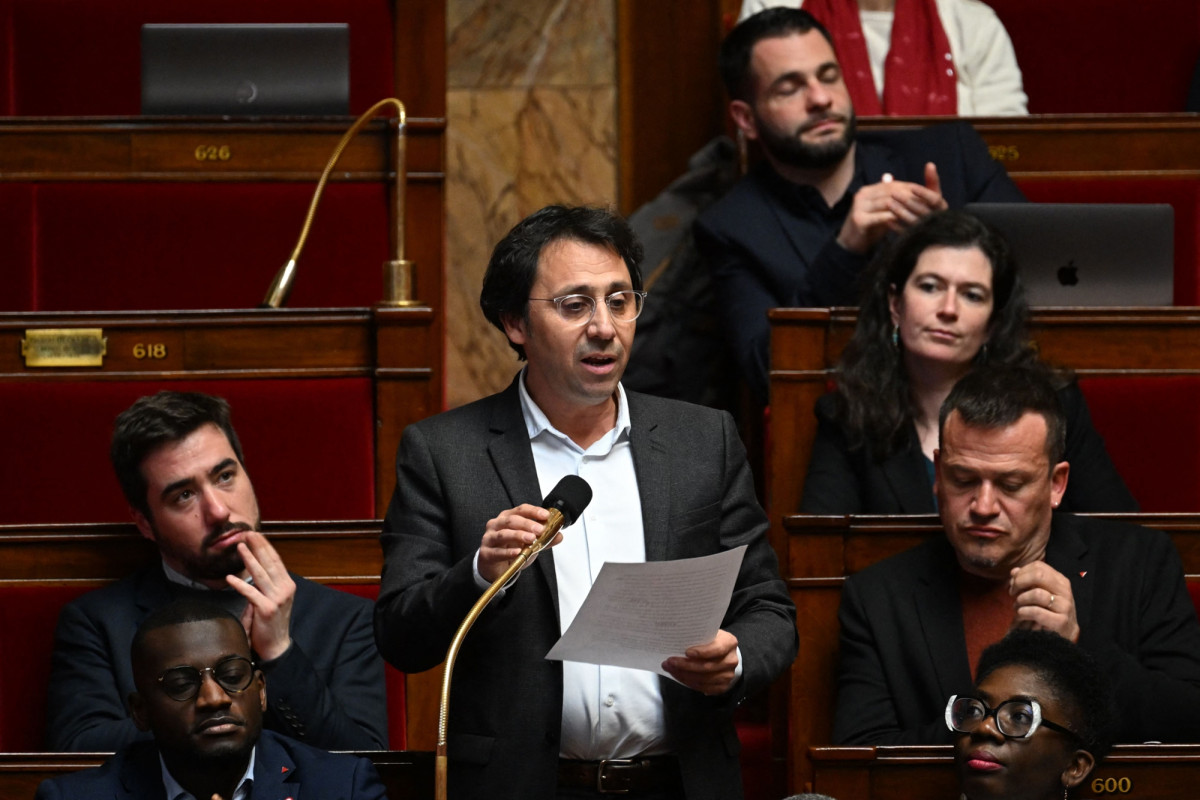


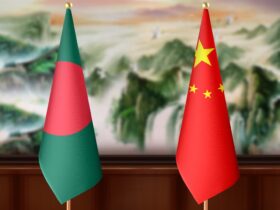

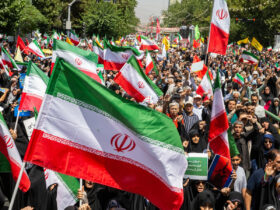
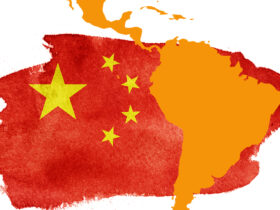
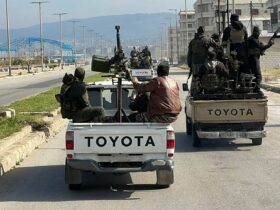
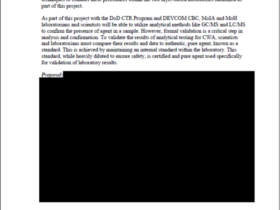

Leave a Reply